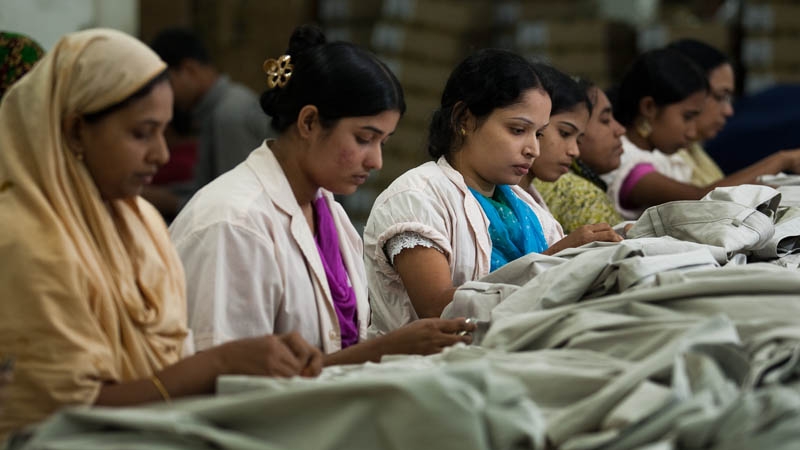According to the report, “Consolidating and Accelerating Exports in Bangladesh” exports can grow faster, provided critical bottlenecks are addressed. Bangladesh needs to improve its trade logistics and infrastructure, increase supply of skilled manpower, and ensure compliance with Government’s labor standards.
Effective trade logistics will give Bangladesh a competitive edge in exports of garments as well as other products. The country needs to improve logistics to ensure that exports as well as imported inputs are shipped on time, cost effectively and reliably, and this is important to even ensure sustained growth in existing areas of strength. Strengthening multimodal connections, improving customs procedures, enhancing air shipment capacity, and improving rail services would be crucial to improve the trade logistics of the country. According to the report, improvements in trade logistics can reduce the lead time for fulfilling and order by up to 21 days, even if raw materials continue to be sourced from abroad.
The skills gap is becoming increasingly visible in all manufacturing sectors, and perhaps more so in the garment sector. A high rate of rejection of final products is one evidence of this. Presence of skilled foreign workers is evidence of gaps in supervisory and management skills. As the main vehicle for training workers, the publicly-funded Technical and Vocational Education and Training program needs to increase its relevance to better meet the needs of garments and other sectors. More innovative ways to improve skills, such as trainee-targeted training vouchers, also need to be thought of.
Compliance with Government’s labor and building standards will become increasingly more important for Bangladesh’s garment exports as Bangladesh moves towards higher value garment exports. The Government will need to work closely with the industry to ensure that its labor standards are properly implemented, and also support firms to relocate factories from residential to industrial buildings that are better equipped to provide safe working conditions.
The report, “Consolidating and Accelerating Exports in Bangladesh” also examines prospects for diversifying into IT-enabled services, a sector that is growing fast worldwide and can provide high-quality jobs. This can potentially help Bangladesh diversify exports, employ significant numbers of young people and raise incomes. Much can be done to promote this industry in Bangladesh including developing soft skills such as fluency in written and spoken English, improving communication skills, and developing infrastructure including real estate and commercial buildings. Creating an apex organization to represent the needs of the sector could go a long way in creating an enabling business environment.

